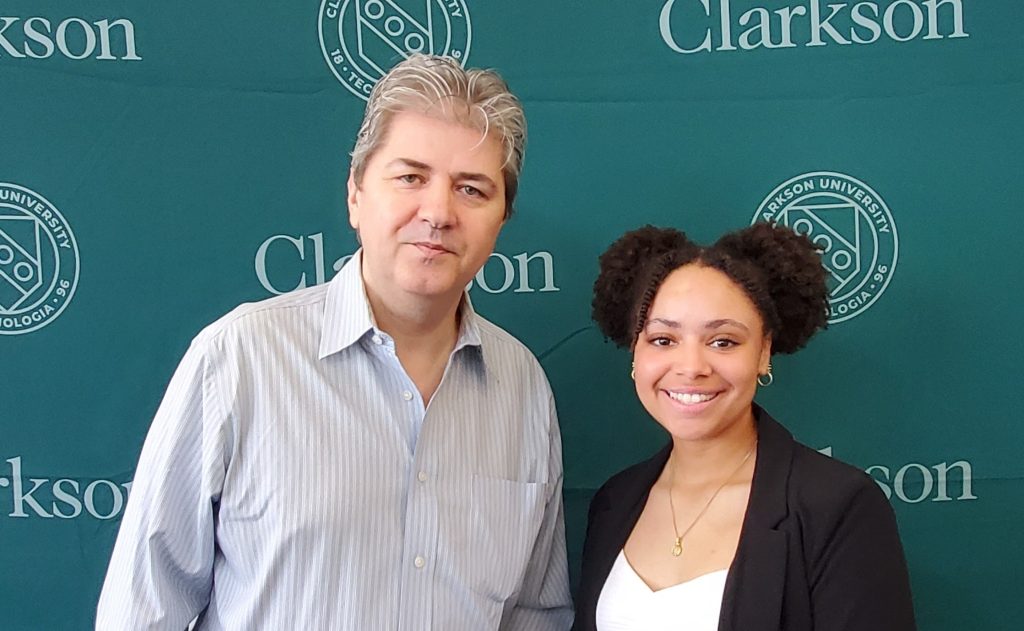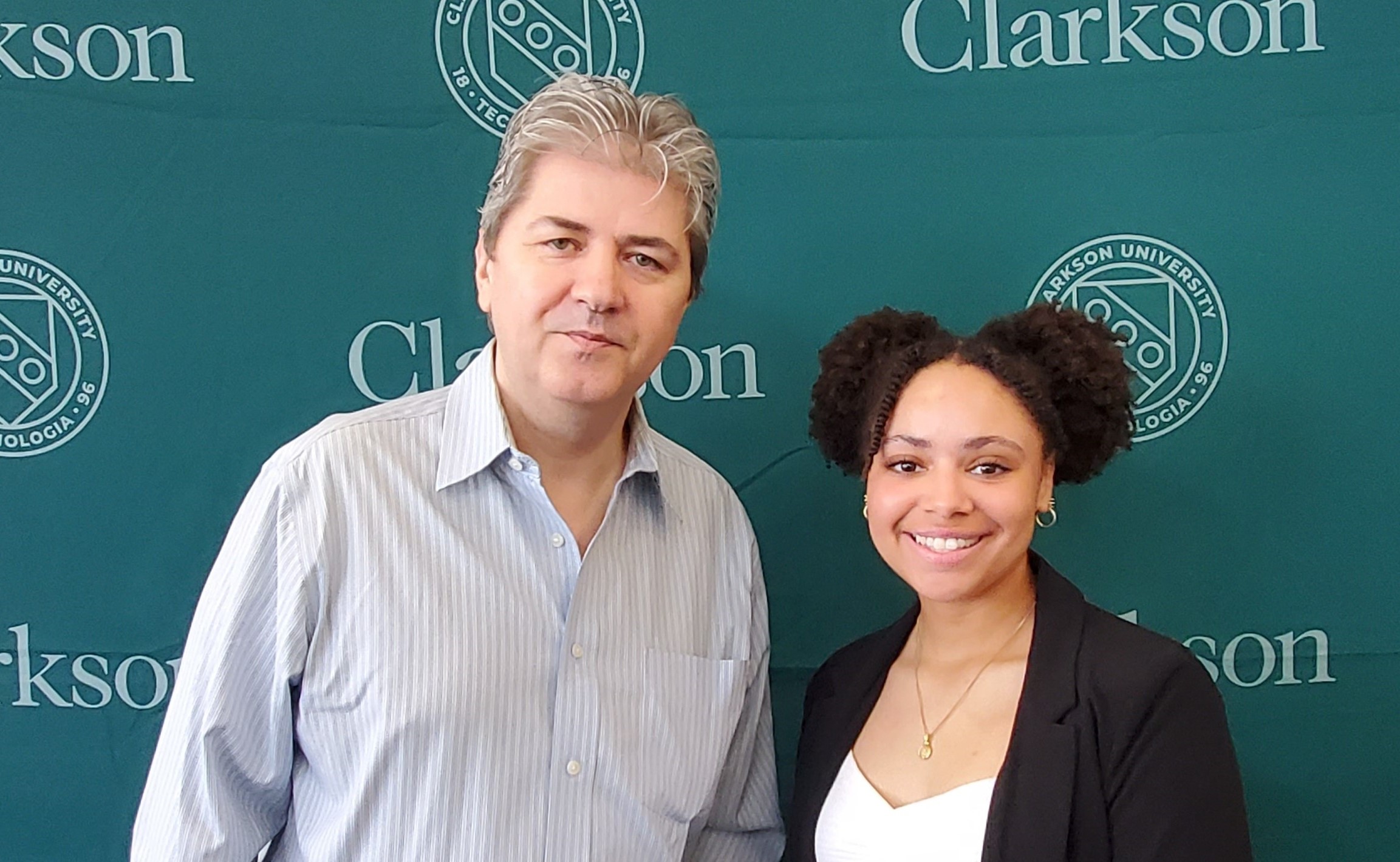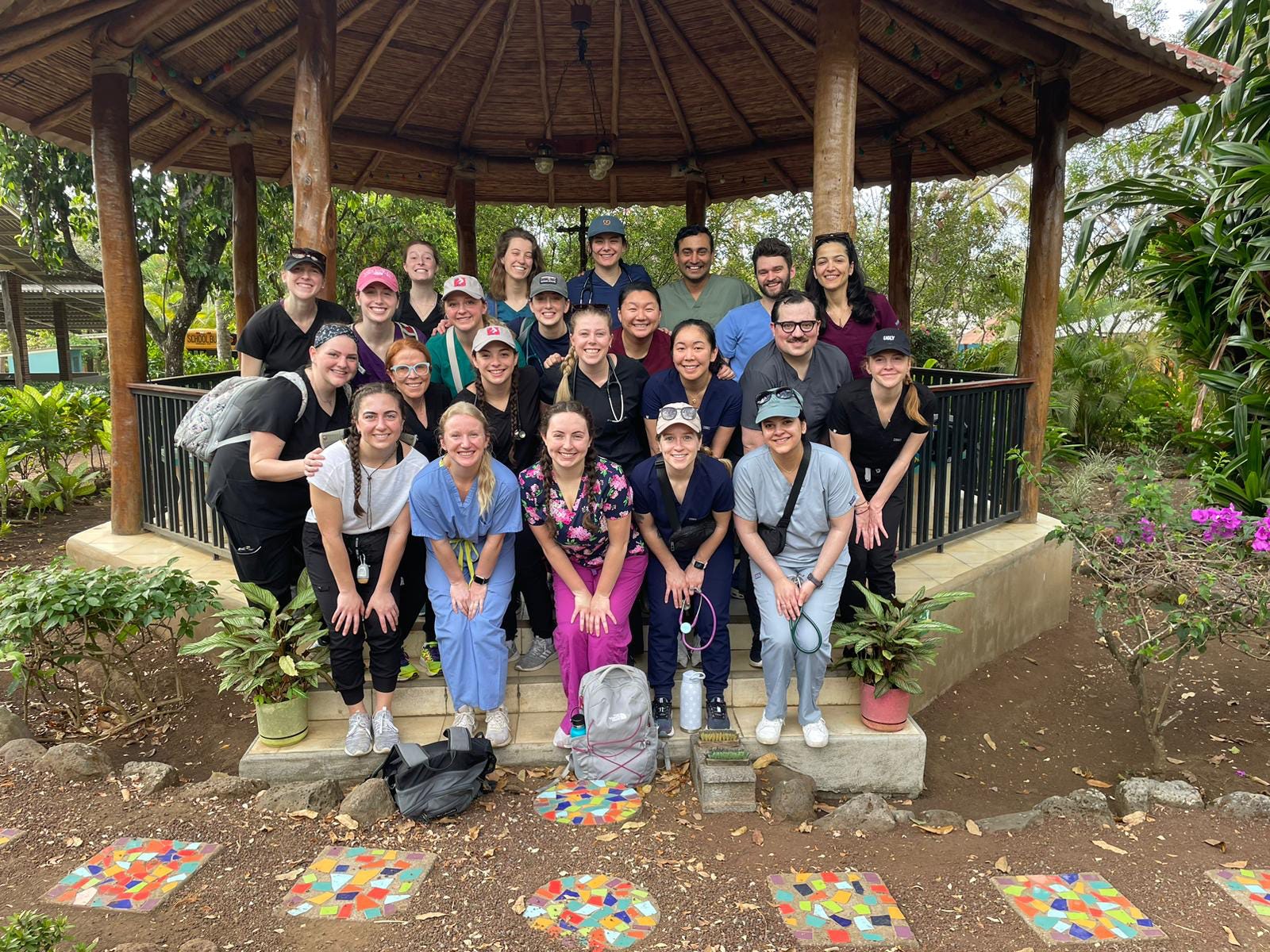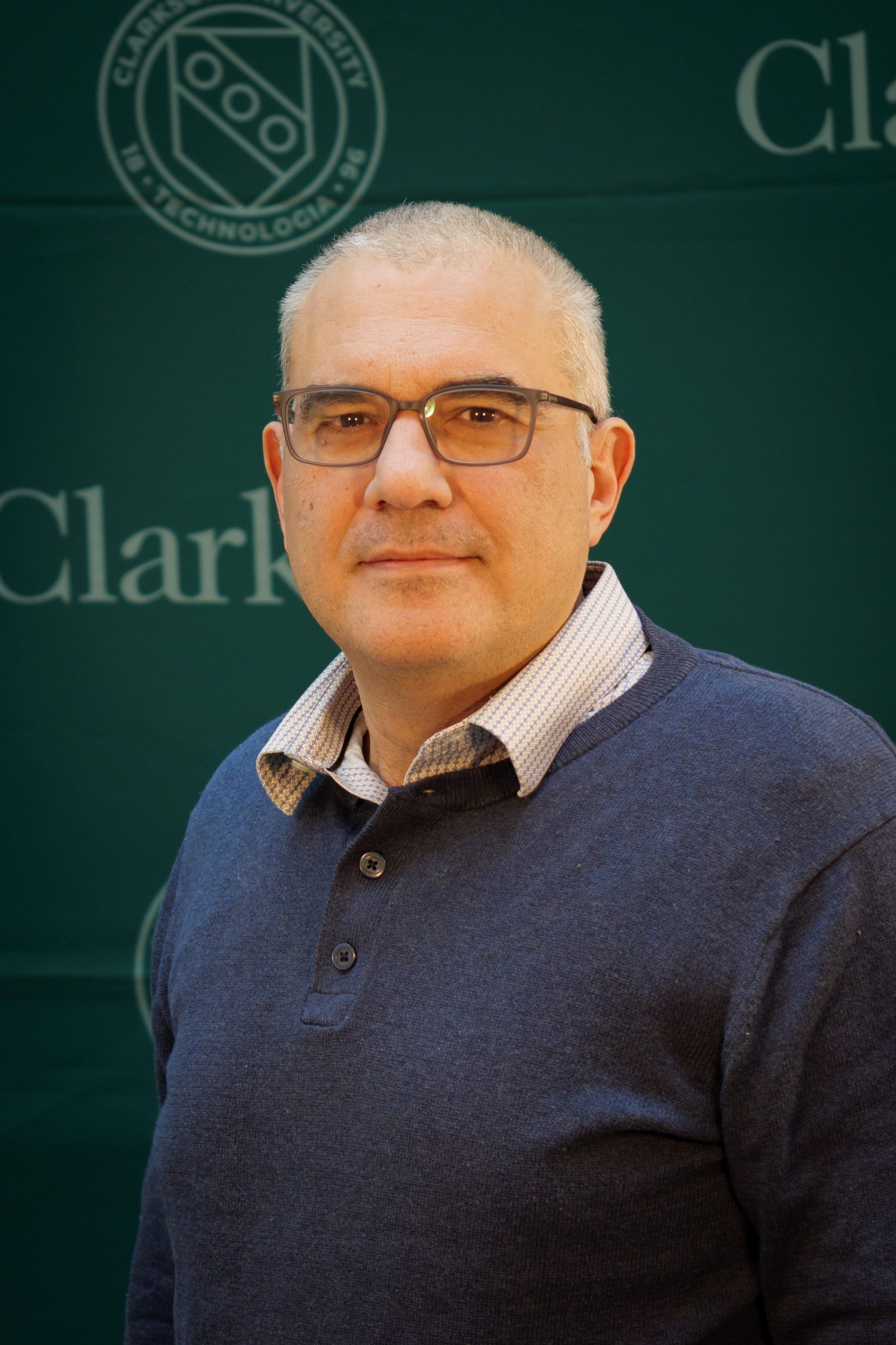The Biochemistry and Proteomics Laboratories, led by Clarkson University Professor of Chemistry & Biochemistry Costel C. Darie, recently received funding for a research position for Kaya Johnson, an undergraduate student majoring in Chemistry & Biochemistry. The funding is a supplement to the National Institute of Health (NIH) grant from the National Cancer Institute, specifically intended to support research performed by underrepresented undergraduate students in labs funded by NIH.

“I am so honored to be doing such important and impactful research,” said Johnson. “I have family members who have battled breast cancer and any work that I can do to progress our knowledge of the disease is huge. I am really passionate about this work and am so grateful for the opportunity to support the NIH in this project.”
The project’s focus is in detection of breast cancer biomarkers and Johnson will focus on one particular set of fragments of proteins that are produced by enzymes and that can be used to either detect breast cancer, or to predict breast cancer progression. As biological material, Johnson will use milk and serum samples from donors with breast cancer and healthy controls. She will also learn hands-on mass spectrometry and proteomics, as well as bioinformatics and cancer biology, as applied to breast cancer.
Johnson, a native of Connecticut, joined the Biochemistry & Proteomics Laboratories in Fall of 2023. She is double majoring in Chemistry and Biochemistry pursuing a minor in business. In addition to academics, Johnson also plays for the Clarkson University Softball Team.
“I do like to support students like Kaya”, said Darie. “It fosters undergraduate research in projects whose significance is clear, and everyone can relate to such a project. In addition, we have a history of supporting such students. Another underrepresented student in our lab is also currently supported by the NIH through a similar mechanism.”



